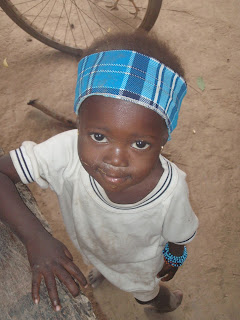Want to make some lunch?
First you pound the millet
Then you sift it
Cute kids of the month: Hamadi
And Fatoumata

Want to make a house? First you need to make the bricks which are a nice mud/straw mixture...
Make some more mud to stick the bricks together...
Here is the layout/foundation














